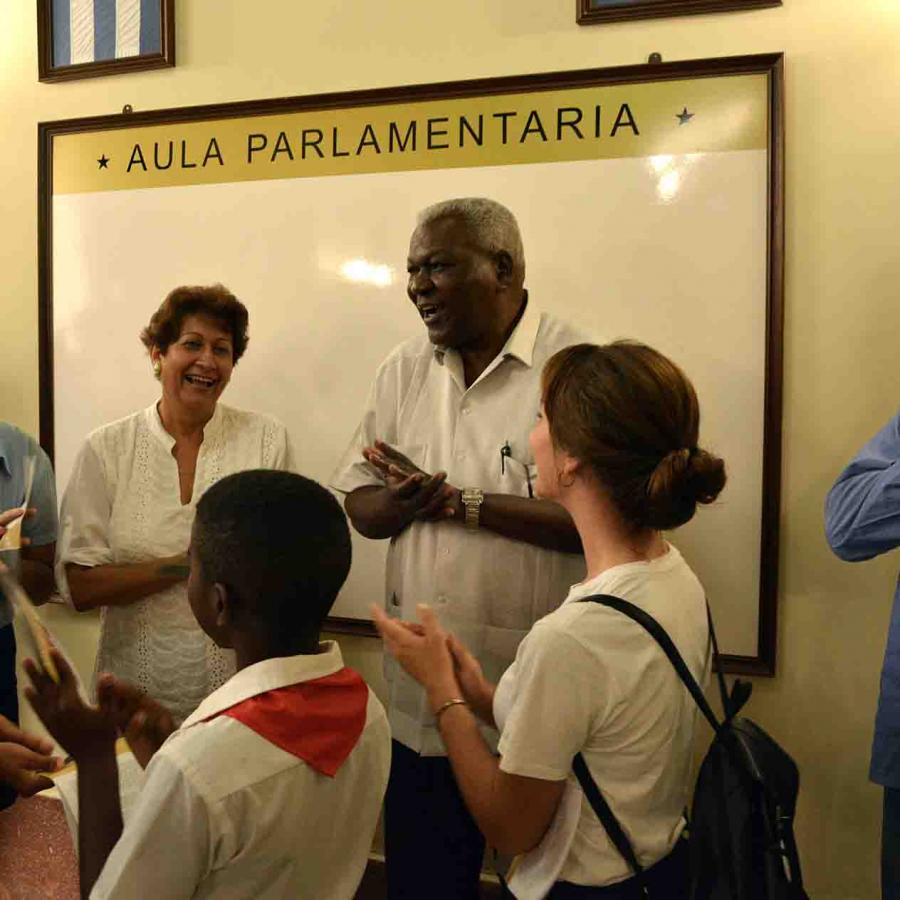
The Parliamentary Classroom is a space of the Auxiliary Offices to promote knowledge about the Cuban political system in general and the functions of the National Assembly of People's Power and the Council of State and strengthen the link with the community in the exercise of popular democracy participatory.
It joins the work carried out by the supreme body of State power in order to raise the legal culture and knowledge of the country's political system, especially among Cuban youth, and make the work of Parliament visible.
It is coordinated by the Independent Department of Library and Documentation of the Auxiliary Offices, but the Communication, Staff, Legal Directorates and the Office of the City Historian also participate in the process.
It is established through an agreement with the training entities and the national education system. It is governed by internal regulations. The initiative has spread to other provinces and municipalities in the country.
It is established by prior coordination with the entities involved.
